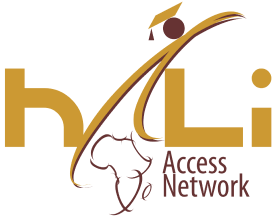Me, Our Moon and HALI Access Network
August 9, 2020 · Sharing Expectise
In 2016, not long after I set up Our Moon, I received by email an invitation to an all-expenses paid indaba in Zimbabwe. At first, I thought it was a hoax and I almost immediately consigned it to my trash. But something about it caught my eye. It was from Rebecca Zeigler Mano and Rebekah Westphal from Education Matters and Yale University respectively; they had managed to persuade Higher Life Foundation in Zimbabwe to fund a small conference for around 18 organisations to come together. All invited organisations had a common goal of helping high achieving, low income (HALI) African students to access higher education opportunities abroad. The agenda was to discuss how we could jointly provide more support for each other, our students, and the universities that select them.
We met at a beautiful lodge just west of Harare where my abiding memory was hearing the reverberating roar of the lions just as dawn was breaking. I must admit that we were timid that first day – a little reticent to share our knowledge – and, for me, rather in awe of some of the mighty organisations that had been established far longer than Our Moon’s three or four months. By the end of the second evening though, as we sat around the fire and shared our stories, barriers were broken down and alliances formed with people I now consider to be my friends, mentors, colleagues and collaborators.
We have managed to meet every year (until this year because of COVID-19 when we will be hosting a virtual indaba next month). As a network, we now have 42 member organisations from 21 African countries that sends over 250 students to study abroad each year, unlocking scholarships full scholarships worth around $70 million per annum.
We recently advocated on behalf of all HALI students studying or about to study in America whose visas were likely to be removed because of legislation being introduced by Trump’s administration during COVID-19. Fortunately, the administration rescinded the foreign student rule.
HALI Access Network has forged an agreement with Collegeboard so that our organisations receive SAT vouchers to reduce our financial burden.
We share undergraduate, postgraduate and other scholarship opportunities that all our students can benefit from. HALI Access Network has become a nominating body for CSCUK that provides post-graduate full scholarship opportunities for our students to study in the UK. Two students that Our Moon has put forward have successfully won scholarships through this process.
When one of my students looked like he could neither stay in New York nor leave this summer because of the pandemic, a university admissions officer offered to host him. I recently wanted some advice on a scholarship opportunity and many chirruping voices were eager to give me advice on our WhatsApp group.
There has even been a benefit from moving a lot of our programming online during COVID-19: we can share some opportunities more easily. All students from the network’s members were offered the chance to join zoom call organised by Education Matters who were virtually hosting three universities: Rice University, Pomona College and Swarthmore College. Our Moon’s students really enjoyed being part of that meeting and feeling that they were part of a much larger group of students with similar ambitions, determination and challenges to them.
I am currently working with one African university to encourage the government to accept the Zambian school leaving certificate as an acceptable entry into university. The indications are that this will be accepted. It doesn’t just mean that Our Moon’s students will have access to universities in that country, but that all Zambian students with appropriate grades will be eligible to apply to all its universities.
I head up the Communications Committee and sit on Exco. We are responsible for internal and external communications including social media and our blogs. My latest venture, albeit I am treading cautiously as I venture way outside my comfort zone, is to run a regular podcast series. The intention is to highlight the stories of our organisations, what drives our founders, many of whom work unpaid or for very little money. I want to shine a light on our students’ stories so that universities gain a better understanding of the huge challenges our students have had to overcome to get to the stage in their lives when they are able to apply to university. I also want to call attention to some of the extraordinary work our alumni go on to do. I hope these podcasts will provide a testimony to the organisations I interview which should, in turn, help their students gain more scholarships and the organisations win more funding for the incredible work they do.
I am forever thankful to Rebecca and Rebekah for bringing their dream to fruition by organising that initial Indaba – and that my eye managed to hover over that email for long enough that I didn’t just delete it.
Share this:
